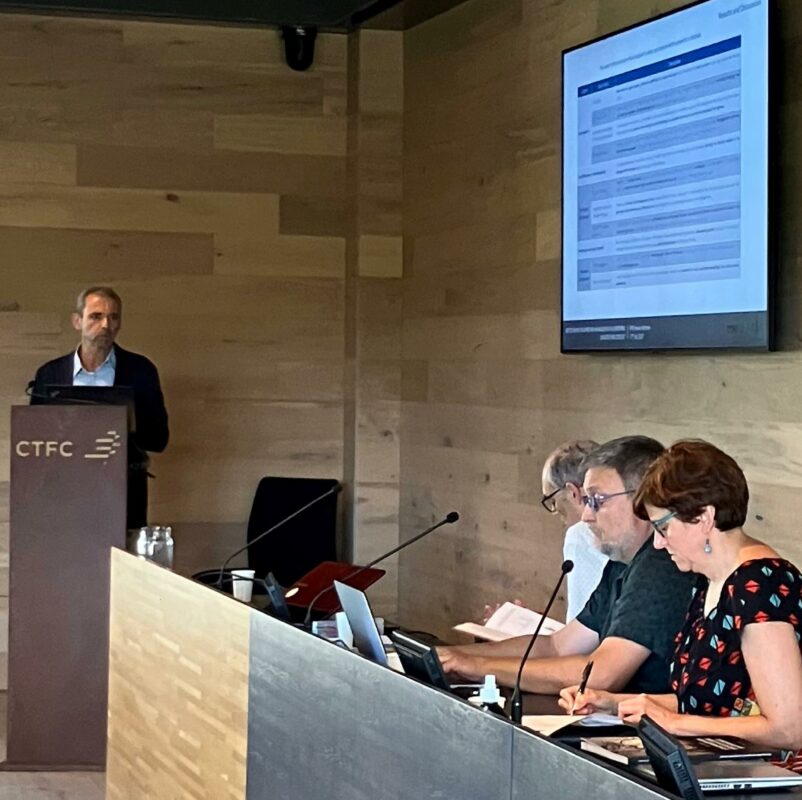The thesis explores the challenges of integrated wildfire risk management in a context of global change, focusing on landscape management, policy coherence, adaptation to extreme wildfires, and social justice
Eduard Plana, head of the Forest Policy and Risk Governance group, defended his doctoral thesis titled “Refocussing wildfire risk management in a growing disaster risk context”, today, July 11, at the Forest Science and Technology Centre of Catalonia (CTFC). The research, conducted within the PhD program at the University of Lleida and supervised by José Antonio Bonet Lledós, analyzes how to address new challenges and opportunities for implementing integrated wildfire risk management strategies in response to the increasing frequency of extreme events associated with global change.
Plana begins with the recognition that wildfire risk is increasing worldwide due to worsening climatic conditions —including prolonged droughts, heatwaves, and storms— as well as changes in landscape management, particularly in the Mediterranean region. This scenario, combined with growing demand for ecosystem services and use of forest areas, creates an increasingly complex risk landscape with serious consequences for human health, the environment, and the economy.
The thesis addresses wildfire risk as a multifactorial phenomenon and proposes an integrated approach that considers ecological, socio-economic, and governance dimensions. Through an analysis of four main axes —the feasibility of landscape-scale fuel treatments, policy coherence, the impact of extreme wildfires on risk management systems, and the dimension of social justice— the study identifies barriers and opportunities for transitioning toward more resilient landscapes and societies.

Among its conclusions, Plana highlights how co-benefit frameworks between fuel management practices and areas such as the bioeconomy or biodiversity conservation can facilitate implementation. “However, achieving real landscape-scale impact requires a coherent policy framework, stable funding, and appropriate legal tools,” he notes. Furthermore, the thesis emphasizes the need to incorporate principles of social justice into risk governance to ensure more inclusive and effective strategies.

Through this research, Eduard Plana contributes to steering wildfire risk management and governance toward an adaptive, interdisciplinary, and socially just model, grounded in scientific evidence and aligned with European priorities for disaster risk reduction and climate resilience.
Last modified: 12 July 2025










